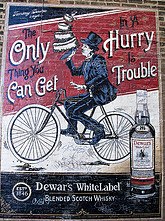Recording Industry Ass’n of America, Inc. v. Librarian of Congress, — F.3d —, 2010 WL 2487842 (D.C. Cir. June 22, 2010)

Recorded music is usually subject to copyright protection in two ways — the musical composition (think sheet music and lyrics) is protected by one copyright, and the actual sound recording is protected by another copyright. In general, for someone other than the copyright owner to use a copyrighted work (e.g., to copy or distribute it), he or she must get a license from the copyright owner (setting aside exceptions such as fair use).
The compulsory license schema
But there’s a kind of zany exception to the general requirement of a negotiated license when it comes to reuse of a musical composition. Others seeking to make such further reuse can do so without obtaining an agreement with the owner of the copyright in the musical composition, provided that the reuser obtain and pay a fee for a “compulsory license.” The mechanics for such licensing system are set up in Section 115 of the Copyright Act (17 USC 115).
There is a Copyright Royalty Board (CRB) that the Library of Congress oversees. This three-member panel sets the fees due to copyright owners under the Section 115 compulsory license schema.
Ring-a-ling cha-ching
As you probably know, ringtones that sample popular songs are popular these days. (As a commuter on public transportation I can attest to what a scourge this is on our modern society.) Since they’re all the rage, they’re big business.
In 2009, after some complex hearings, the CRB set the rate for payment under a compulsory license at 24 cents per ringtone sold. The Recording Industry Association of American (RIAA) had argued that its copyright owners were entitled to a percentage of total revenue, not a flat “penny-rate.” Unhappy with the CRB’s determination, it appealed to the U.S. Court of Appeals for the District of Columbia Circuit. The court affirmed the CRB’s penny-rate of 24 cents.
How the CRB was right
The CRB determined that a penny-rate was more in line with reimbursing copyright owners for the use of their works. In upholding the CRB’s determination on this point, the court observed that in other cases it had validated the CRB’s preference for a royalty system based on the number of copyrighted works sold — like the penny rate — as being more directly tied to the nature of the right being licensed than a percentage-of-revenue rate.
Moreover, the CRB had determined (and the court agreed) that a percentage revenue model did not make as much sense for the sale of individual copyrighted works as it would in the sale of media that is streamed or broadcast. Simply stated, it is relatively easy to measure how many copies of a ringtone are sold, and thus easy to calculate a penny-rate amount. But that is more difficult to accurately do in the case, for example, of satellite radio. Those difficulties were not present in this situation, and that militated against the adoption of a percentage rate.
Finally, the court agreed with the CRB’s disdain for the complexity of calculating a percentage of revenue licensing fee. A penny-rate structure was much simpler to handle than the “salient difficulties” presented by the RIAA’s percentage mode.
The court found nothing unreasonable about the CRB’s determination (i.e., that the the CRB’s determination was not arbitrary and capricious, and so it affirmed that determination.
Photo courtesy Flickr user totalAldo under this Creative Commons license.


 The
The